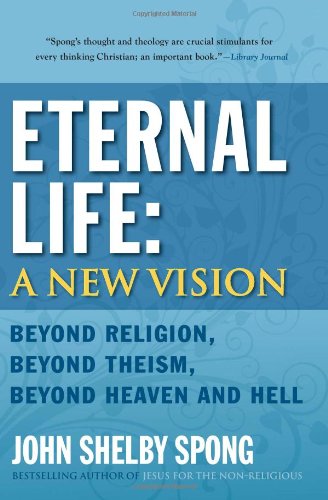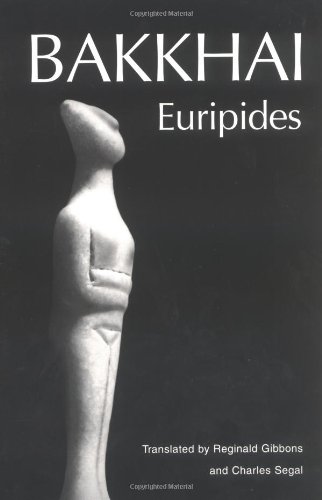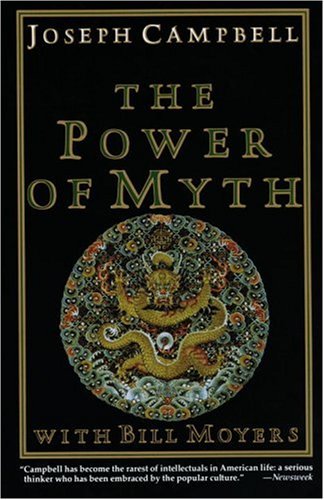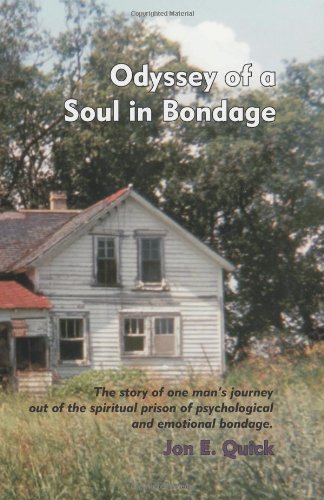Revelation 11:19, What Happened to the Ark of the Covenant?
Then God’s temple in heaven was opened, and within his temple was seen the ark of his covenant. And there came flashes of lightning, rumblings, peals of thunder, an earthquake and a great hailstorm.
//In the sixth century B.C., the Babylonian empire, under King Nebuchadnezzar, sacked and plundered Jerusalem, destroying the Temple. Inside the Temple was Israel’s most holy relic: The Ark of the Covenant. But what happened to the Ark is unknown, and has been debated for centuries. If the Babylonians took it, they did so secretly, because the detailed lists they prepared of other vessels taken from the Temple contain no mention of the Ark. Some have wondered if it wasn’t burned down inside the Temple, purposefully melted to collect its gold.
Other scenarios have been proposed. According to some sources, King Josiah of the Jews learned of the coming invasion by the Babylonians and hid the Ark. One midrashic source (Maimonides, Laws of the Temple, 4:1). claims that Solomon predicted the destruction of the Temple and prepared a cave near the Dead Sea, in which King Josiah eventually hid the Ark. Another (Yoma 53b) says he dug a hole under a storehouse on the Temple Mount and buried it there. If that’s where it went, then Archaeologist Leen Ritmeyer claims to have found the most plausible spot for its burial. In the precise center of the location where his research places the Holy of Holies within the Temple is a section of bedrock cut out in the dimensions that may match those of the Ark as described in Exodus.
It’s also possible the lost Ark isn’t lost at all. The church of St. Mary of Zion, in Ethiopia, claims to have the ark in their possession. It’s carefully guarded by a monk known as the “Keeper of the Ark.” It’s location, however, is unverifiable, since only this one monk is allowed in its presence.
Today’s verse provides yet another possibility. Apparently, the ark’s location was a hot topic even 2,000 years ago. According to Revelation 11:19, all you ark hunters can give up the search. It’s already up in heaven.
Got an opinion? 0 commentsBook review: Eternal Life: A New Vision
by John Shelby Spong
★★★★★
For all you Spong fans who were beginning to grow frustrated at his vagueness, this book tackles an important subject head on. What are liberal Christians (at least those in the Spong mold) supposed to make of the Bible’s promise of eternal life?
We needn’t depend upon the supernatural in order to grasp eternal life, for all life is deeply linked. Spong quotes Einstein’s provocative claim to explain: “I feel myself so much a part of everything living that I am not the least concerned with the beginning or ending of the concrete existence of any one person in this eternal flow.” Spong wants us to “embrace infinity,” to “transcend time.” But he hopes for us to discover the eternal in a very practical way. Eternity is within us, it is what it means to be human.
Spong writes, “The power of love flows through all forms of life, but it ceases to be instinctual and comes to self-consciousness only in human beings. That power of love is also part of who God is for me. This means that the more deeply I am able to love, the more God becomes a part of me. This is why no religion can in the last analysis ever really be about proper beliefs and proper practices … Religion has to be about the enhancement of life through love.” You’ve probably heard this before if you’re a Spong fan, but it doesn’t hurt to be reminded. Love is, after all, the key to finding life eternal.
But what about reward? Spong is quite happy to rid religion of both heaven and hell, having never been a fan of either. “The fact is that if you and I live our lives motivated by our desire to gain paradise or to avoid eternal punishment, then we have not escaped the basic self-centeredness of life that is so natural to survival-oriented, self-conscious creatures.” In other words, eternal reward only gets in the way of the true Christian message.
Uplifting and timely, this is a book worth reading twice. I have.

Luke 23:33, The Passover Spit
And when they were come to the place, which is called Calvary, there they crucified him.
//Some time ago, a friend laughed when I compared Christ stretched on the cross to the Passover lamb stretched on the spit. We were discussing the Gospel of John, and John’s theology of Christ as the Lamb. In this Gospel, and this Gospel alone, Christ dies before the Passover; he does not eat a Passover meal with his followers. Rather, he dies on the cross at the moment the lambs are slaughtered in the Temple.
I wondered if the apostles, as they shared a Passover meal the next day, would have recognized the image of their master in the lamb on the spit. My friend thought my imagination was running away with me, but my idea was far from original.
It took me a while, but I found the reference I was trying to remember, from second-century apologist Justin Martyr:
The mystery, then, of the lamb which God enjoined to be sacrificed as the Passover, was a type of Christ; with whose blood, in proportion to their faith in Him, they anoint their houses, i.e., themselves, who believe on Him … and that lamb which was commanded to be wholly roasted was a symbol of the suffering of the cross which Christ would undergo. For the lamb, which is roasted, is roasted and dressed up in the form of the cross. For one spit is transfixed right through from the lower parts up to the head, and one across the back, to which are attached the legs of the lamb. –Justin Martyr, Dialog with Trypho
Got an opinion? 2 commentsBook review: Bakkhai
by Euripides, translated by Reginald Gibbons
★★★★
For those who don’t recognize the title, this ancient Greek theater piece is about the god Dionysus, god of wine. It was first performed in Athens, in 405 BC. And for those who still don’t catch the connection to my blog, it’s this: Many of the characteristics of Jesus are shared with this frivolous Greek god, and at least one of Jesus’ miracles—turning water into wine—also seems closely related. In fact, the late Byzantine play, The Passion of Christ, drew heavily on the Bakkhai.
Greek tragedies are a little hard for us to fully enter into two and a half millennia later, particularly as we struggle to understand on just at what level the Greeks believed in their gods, but the commentary of this book does a great job of making something foreign feel familiar. In the play, you’ll see Dionysus’ more unpleasant side … his usual ecstasy and abandon turn into vengeance and bloodlust, aimed toward a young king who seeks to discredit him. True to Greek form, the god wins, with no apparent attempt at a climaxing plot; we understand from the beginning that humans are doomed to subjection before the gods. The punishment for disbelief far exceeds the crime, with no hint of pity or apology, as befits the gods’ disdain for lesser beings.
I found the forty page introduction superb, and the notes following the play a bit less so, though still helpful in illuminating the setting.

Matthew 2:23, Did Nazareth Exist?
And he came and dwelt in a city called Nazareth: that it might be fulfilled which was spoken by the prophets, He shall be called a Nazarene.
//Some scholars continue to insist that there was never any such city as Nazareth in Galilee. Today’s verse, rather than bolstering the argument for Nazareth’s historic existence, is actually used to argue against it. Scholars doubt that there is any connection between the Nazarenes and the inhabitants of Nazareth; Matthew should have known better. Perhaps Matthew was trying explain the title “Jesus of Nazareth,” while knowing no such place exists?
Why is there any skepticism in the first place? Skeptics point to the fact that Joshua chapter 19 lists all the towns of the tribe of Zebulun. Nazareth isn’t listed. Josephus gives the names of 45 towns and villages in Galilee. Nazareth isn’t on his list. The Talmud names 63 towns and villages. No Nazareth. You can see why some wonder if there really was a “city called Nazareth.”
One strong argument for the historic existence of Nazareth, however, is a large 24” by 15” marble tablet containing an edict of Caesar (either Tiberius or Claudius), found in Caesarea. This artifact was uncovered in three fragments, the final third being discovered in 1962. It is known as the Nazareth inscription since it’s the first known inscription citing the name Nazareth. It contains a list of 24 priests (see 1 Chronicles 25:7-8 for these priestly orders) with their surnames and the locations of the Galilean towns where they relocated following the destruction of the Temple in 70 A.D.
The Nazareth inscription is actually famous for a different reason; it contains a strong polemic against tomb robbery, and is thought by some to be a countermeasure taken by Caesar himself in regards to the missing body of Jesus! Had news of the empty tomb gotten back to Rome? Why else would Caesar enforce so severe a punishment for a relatively minor crime?
Sounds a bit presumptious to me, so I’ll let you decide for yourself. Here’s the full text of the edict:
1. EDICT OF CAESAR
2. It is my decision [concerning] graves and tombs–whoever has made
3. them for the religious observances of parents, or children, or household
4. members–that these remain undisturbed forever. But if anyone legally
5. charges that another person has destroyed, or has in any manner extracted
6. those who have been buried, or has moved with wicked intent those who
7. have been buried to other places, committing a crime against them, or has
8. moved sepulcher-sealing stones, against such a person, I order that a
9. judicial tribunal be created, just as [is done] concerning the gods in
10. human religious observances, even more so will it be obligatory to treat
11. with honor those who have been entombed. You are absolutely not to
12. allow anyone to move [those who have been entombed]. But if
13. [someone does], I wish that [violator] to suffer capital punishment under
14. the title of tomb-breaker.
Got an opinion? 2 commentsBook review: Evidence for the Historical Jesus
by Josh McDowell and Bill Wilson
★★★★
Great book! I enjoyed reading it, and it’s chock full of fascinating facts and interesting arguments. I’ve got margin notes and highlights all over it. While the authors seem a bit defensive at times, they do provide a lot of meat to chew on. I enjoyed learning about Jesus the Jew, arguments against the two-source theory, arguments against Christianity as a copycat of the mystery religions, and the discussion of Jesus’ own Messianic and divine understanding.
I really did enjoy the book. Unfortunately, as far as the book’s purpose of providing evidence of the Historical Jesus, I came away underwhelmed. Such “evidence” ends on page 87 with the statement “That Jesus actually lived in history should be obvious by now.” It’s actually anything but obvious; by this point, the authors have reviewed only rabbinic writings, secular writings like those of Josephus, and the testimony of the early church fathers. They argue that surely no martyr would die for a cause he didn’t 100% believe in. None of this convinces me of a historical Jesus beyond, say, about a 50% surety. But unfortunately, from this point forward in the book, the authors shift focus to proving the historic accuracy of the Bible, and in doing so, they overreach and leave some of their arguments crippled. The Gospel story does provide much indirect evidence for the existence of Jesus, but in trying to prove the Bible happened literally, word-for-word, the authors wind up falling back on logic that just doesn’t work for me. Because of the authors’ stated premise of proving Jesus lived, a critical review must address primarily this goal, so it’s going to be rather long and sound more negative than the book deserves. But here goes.
Here’s an example of the type of claim that betrays the authors’ bias: “A comparison between the false writings and the canonical ones often immediately confirms the obvious superiority and authenticity of the canonical gospels.” Well, if that were even remotely true, we wouldn’t be having this discussion. Perhaps the canonical gospels have a more authentic air than the non-canonical ones, but that hardly confirms that any of them are authentic. Here’s another typical assumption: “The New Testament accounts of the life and teaching of Jesus were recorded by men who had been either eyewitnesses themselves or who related the accounts of eyewitnesses of the actual events of teachings of Jesus.” Again, if we knew this to be true, the discussion about Jesus’ existence wouldn’t be necessary. How about this: “The New Testament accounts of Jesus began to be circulated within the lifetimes of those alive at the time of his life. These people could certainly confirm or deny the accuracy of the accounts.” Oops! The story of Jesus was written outside the territory where Jesus taught, in a language Jesus and his closest followers probably didn’t speak, 40-80 years after Jesus died. Perhaps by “New Testament accounts” the authors mean the writings of Paul, but then much of the “did Jesus exist” argument becomes centered around whether or not Paul really did teach a human Jesus. Or perhaps by “within the lifetimes of those alive at the time of [Jesus’] life” they mean primarily John the Apostle. Tradition holds that John outlived the other apostles into the final decade of the first century. John, then, could have read the other gospels, and would have had opportunity to contradict them, right? Well, guess what? John’s Gospel does just that; just about every place John refers to a story in the Synoptics, it’s to contradict the story. That’s hardly an endorsement of the Synoptic gospels.
Sometimes, the arguments presented by the authors seem to hurt their cause more than they help. Because an early date of the Gospels seems important to them, they point out how the book of Acts does not mention the war of 70 AD, and conclude that it must have therefore been written earlier than the year 70. Then, because Acts refers to an earlier writing (presumably the Gospel of Luke), they conclude Luke must have been written earlier yet. But they forget to mention that Luke writes very specifically about the war; thus, a historical-critical approach to the Gospel story must date Luke after 70 AD. Here’s another howler quoted from the book: “There is no mention of Jesus’ tomb ever being venerated as were those of at least fifty other prophets, later including Hanina ben Dosa. The only good explanation is that Jesus’ bones were no longer there.” Um, sorry, the only really good explanation is that Jesus was never there in the first place!
My opinion: By taking on the role of apologists, the authors may have relinquished some of their strongest Biblical arguments. They discuss John the Baptist, but by taking an apologetic stance, they can’t question why the Gospels would record the embarrassing story of Jesus being baptized by a competitor “for his sins” if it weren’t historically true. They mention how Paul refers to James as the brother of Jesus, but because they prefer not to emphasize the friction between Paul and the Jerusalem Christians, they cannot argue that Paul didn’t mean “brother” as a title or in a spiritual sense. They ignore the lonely cry of despair of Jesus on the cross, or any of the other human traits of Jesus in the book of Mark, such as his occasional failures. They argue that Matthew was written before Mark, presumably to defend the claims of the early church fathers, but in doing so, they destroy a valuable argument: by tracing the declining Christology of the New Testament as we step backward in time, the way current scholarship chronologically orders the books of the New Testament, we aim straight for a human Jesus.
Finally, let me say it one more time for emphasis, because I realize I came down pretty hard on the book. I really enjoyed it! It just falls flat of its stated purpose by trying to prove too much.

1 Kings 22:38, A Bloody Bath
… and the dogs licked up his blood, and the prostitutes washed themselves in it, according to the word of the LORD that he had spoken.
//Ewww!
Did prostitutes really bathe themselves in the blood of King Ahab? Various translations reach different conclusions.
The story runs like this: God, sitting on his throne in heaven, is having trouble coming up with a plan to entice Ahab into a war that will be his demise. All the hosts of heaven are standing around the throne, bantering ideas back and forth. Finally, a “lying spirit” offers to deceive Ahab. God approves the plan, and the lying spirit makes his exit. He speaks through the mouths of Ahab’s prophets, promising Ahab victory.
Though warned that his prophets had spoken a lie, Ahab decides to enter battle anyway, cloaked in disguise. It doesn’t work; a random arrow finds him, and he spends the battle propped up in his chariot, bleeding to death, watching his army suffer defeat.
The bloody chariot is taken to Samaria, and there it is washed in a pool where prostitutes bathe. Perhaps while prostitutes bathe. The text is unclear.
Got an opinion? 1 commentBook review: The Power of Myth
by Joseph Campbell and Bill Moyers
★★★★★
Why do we need our folk tales, anyway? Why can’t our religious icons be accepted at face value, instead of lifting them up higher than life? How do phrases like “Son of God” spring so easily and meaningfully from our lips? Why must we idolize our heroes, why do we embrace our rituals?
Journalist Bill Moyers interviews Joseph Campbell to learn why mythology is so important to us. This is sort of a compilation of Campbell’s work. Says Campbell, mythology is the “song of the universe, the music of the spheres.” It is what turns each little cluster of believers, with their own heritage, into the world’s Chosen People. From Dante’s Divine Comedy to Native American rituals, Campbell has plenty of opinions. He’s an intellectual who is simply fun to read…he’s got a way of just making sense, like a sort of Feynman for philosophers, that leaves you feeling like maybe you finally understand something.
This isn’t a new book, but it’s one of those must-reads that we shouldn’t forget. I don’t think Campbell means to trivialize religion, culture or customs; rather, I dare say, you might even find God in these pages.

Psalms 147:4, The Names of the Stars
He determines the number of the stars and calls them each by name.
//This is why mathematicians get a headache when they read the Bible. If we estimate 100 billion galaxies of 100 billion stars each, that’s a lot of stars to know by name!
They’re big names to remember, too. If you create random names from letters, half vowels and half consonants, you’ll need star names 19 letters long to name them all. And God’s calls them all by name? If he started at the beginning of the universe 13.7 billion years ago, and pronounced 2,300 19-letter star names every second, he’d be about caught up.
Now you know why it’s so hard to understand when God speaks. Nobody can listen as fast as he talks.
Book review: Odyssey of a Soul in Bondage
by Jon E. Quick
★★★
I was convicted of first degree pre-meditated murder thirty-four years, one month, and eighteen days after I was born.
This is a very disturbing autobiographical account of a man growing up in an obscure Christian sect with an abusive father. Sometimes known as the “friends and workers” or the “2x2s,” this is the same sect I grew up in. My own experience was radically different from Jon’s; I’m personally very happy to have been raised in what was, for me, a wholesome atmosphere. But the opinions of members and ex-members of this belief system are so extreme, some going so far as to call it a cult, that I must let you decide for yourself after reading the book. Because of my closeness to the topic, I feel uncomfortable rating it, so I’ll just review the book without a rating.
The state of mind of this persecuted man shows through clearly, the more so because we are reading his account from his own hand. Sometimes conflicted, sometimes accusatory, sometimes broken, sometimes resentful, sometimes repentant, it’s like a different Jon on each page. One person in his life is described as “evil” on one page and “sweet and loving” on another. The book ends with a plea to his ex-wife for forgiveness.
Before this final plea could be possible, however, Jon finds himself undergoing a Christian transformation in prison. While still behind iron bars, he is set free from his emotional bondage. “Having attained such freedom through the Grace of God, I can safely attest that I will never again be in bondage to the corruption, deceit, and lies of men, regardless of where I may be physically.”
Note to readers: If you’re not familiar with this Christian sect, a lot of the terminology won’t make sense. Start the book by reading the “terms used” in the appendix.

















 354 Circles
354 Circles
 603 Goodreads Friends & Fans
603 Goodreads Friends & Fans

 Hello! I'm an author, historical Jesus scholar, book reviewer, and liberal Christian, which means I appreciate and attempt to exercise the humanitarian teachings of Jesus without getting hung up on any particular supernatural or religious beliefs.
The Bible is a magnificent book that has inspired and spiritually fed generations for thousands of years, and each new century seems to bring a deeper understanding of life’s purpose. This is true of not only Christianity; through the years, our age-old religions are slowly transforming from superstitious rituals into humanitarian philosophies. In short, we are growing up, and I am thrilled to be riding the wave.
I avidly read all thought-provoking religion titles. New authors: I'd love to read and review your book!
Hello! I'm an author, historical Jesus scholar, book reviewer, and liberal Christian, which means I appreciate and attempt to exercise the humanitarian teachings of Jesus without getting hung up on any particular supernatural or religious beliefs.
The Bible is a magnificent book that has inspired and spiritually fed generations for thousands of years, and each new century seems to bring a deeper understanding of life’s purpose. This is true of not only Christianity; through the years, our age-old religions are slowly transforming from superstitious rituals into humanitarian philosophies. In short, we are growing up, and I am thrilled to be riding the wave.
I avidly read all thought-provoking religion titles. New authors: I'd love to read and review your book!
 Hi! While Lee writes the articles and reviews the books, I edit, organize, and maintain the blog. The views expressed here are Lee's but I'm his biggest supporter! :-)
Hi! While Lee writes the articles and reviews the books, I edit, organize, and maintain the blog. The views expressed here are Lee's but I'm his biggest supporter! :-)
Connect With Me!